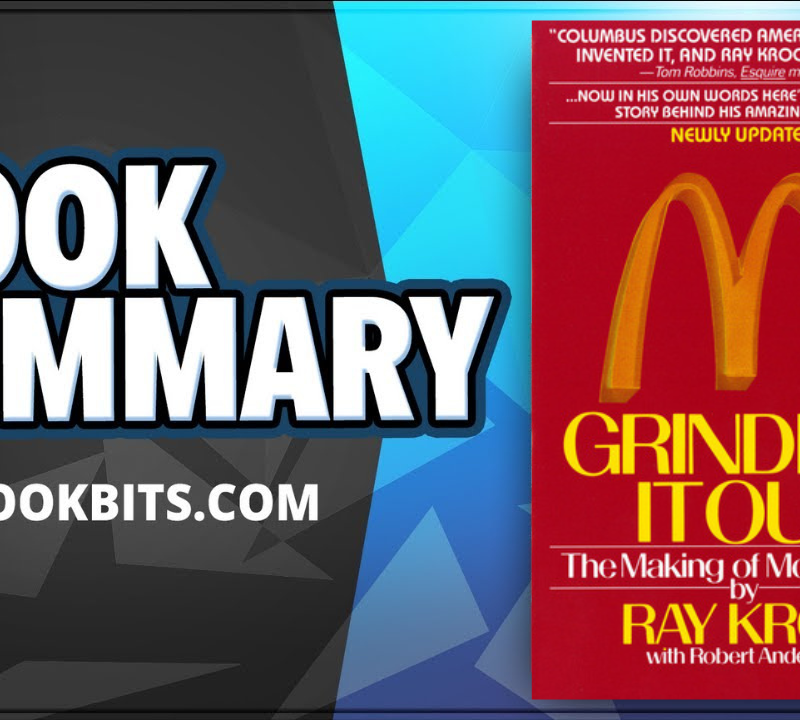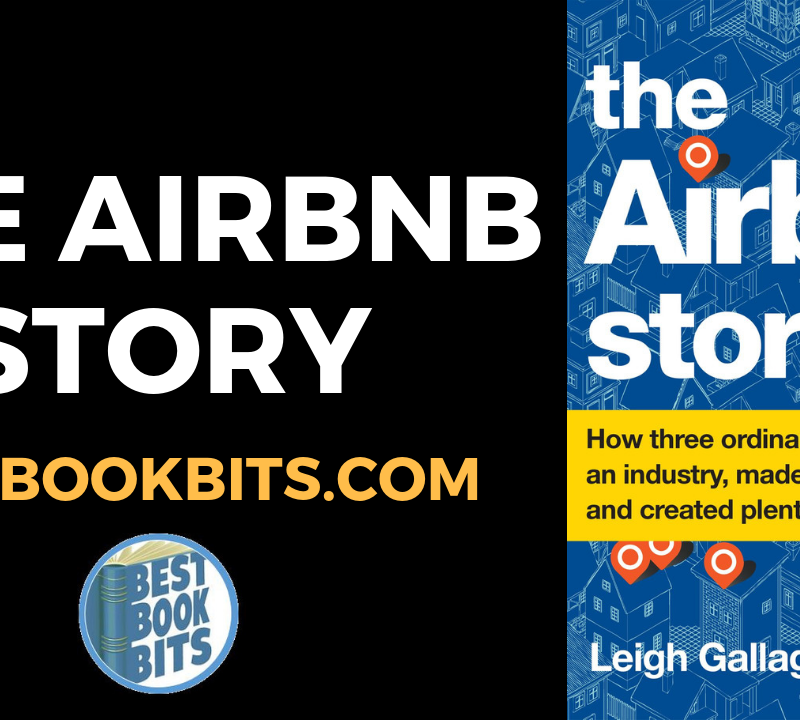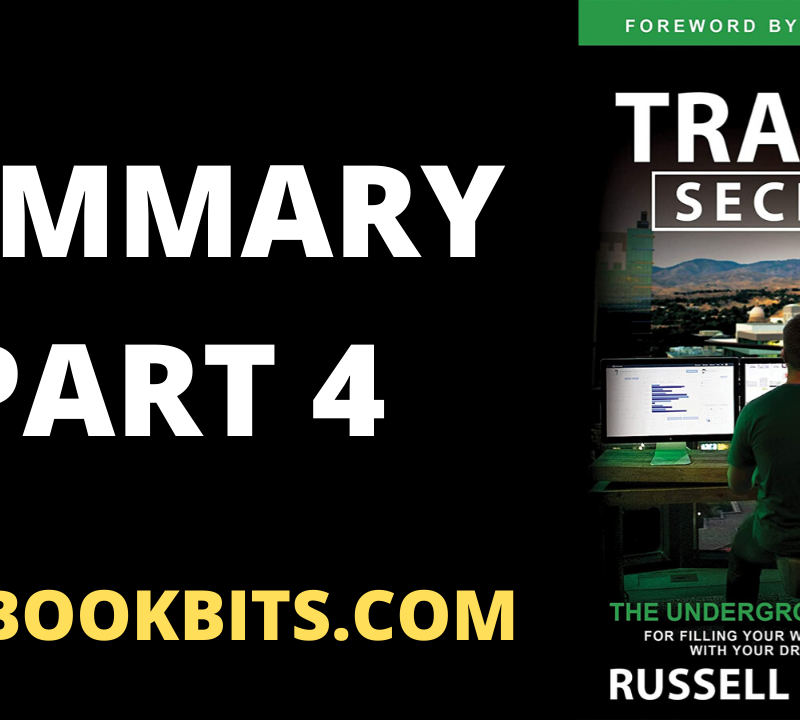★DOWNLOAD THIS FREE PDF SUMMARY HERE
? MY FREE BOOK TO LIVING YOUR DREAM LIFE”
? SPONSOR BESTBOOKBITS BY USING PATREON
? SUPPORT BESTBOOKBITS BY CLICKING THE LINKS BELOW
- 150 PDF Summaries
- Coaching Program
- Subscribe to My Channel
- Website
- Spotify
- Book Club
- Mailing List
Instead of the detail step-by-step process, Perennial Seller covers the fundamental principles of creating great work that lasts. I believe it’s true that we can’t use tactics that will probably expire sooner than we think when our aim is to create something that lasts for decades to come. Here comes the line that resonates with me the most:
“When it comes to making your art—whether it’s music or writing or building a great company—you either really want it or you don’t. There is no easy way in, or out.”
- People claim to want to do something that matters, yet they measure themselves against things that don’t, and track their progress not in years but in microseconds. They want to make something timeless, but they focus instead on immediate payoffs and instant gratification.
- Over the long term, all the marketing in the world won’t matter if the product hasn’t been made right.
- The better your product is, the better your marketing will be. The worse it is, the more time you will have to spend marketing and the less effective every minute of that marketing will be.
- Powerful work is a struggle and that it requires great sacrifice. The desire for lasting greatness makes the struggle survivable, the sacrifice worth it.
- From sacrifice comes meaning. From struggle comes purpose. If you’re to create something powerful and important, you must at the very best be driven by an equally powerful inner force. If there is anything to romanticize about art, it’s the struggle and the dedication required to get it right—and the motivating force that makes it all possible.
- Art is the kind of marathon where you cross the finish line and instead of getting a medal placed around your neck, the volunteers roughly grab you by the shoulders and walk you over the starting line of another marathon.
- You can’t make something that lasts if it’s based on things, on individual parts that themselves won’t last, or if it’s driven by an amateur’s impatience. The creative process will require not only time and work, but also the long view.
- Many studies have confirmed that creativity isn’t like a lightning strike. A creative work usually starts with an idea that seems to have potential and then evolves with work and interaction into something more.
- If there is any magic in creative expression, it’s how small, even silly ideas can become big, awe-inspiring works if a person invests enough of them in them. How within seemingly ordinary people there can exist depths of wisdom, beauty, and insight—and that if they put in the work to plumb those deep depths, they might reap incredible rewards.
Getting into action generates inspiration. Don’t cop out waiting for inspiration to get you back to action. It won’t! —Robert Evans
- For any project, you must know what you are doing—and what you are not doing. You must also know who you are doing it for—and who you are not doing it for—to be able to say: THIS and for THESE PEOPLE.
- Great, successful work rarely starts as a solution in search of a problem. Lasting resonance requires something more than novelty: It needs an earnest person attempting to find a solution to a common problem.
- The bigger and more painful the problem you solve, the better its cultural hook, and the more important and more lucrative your attempt to address it can be.
- Stuff that’s boring now is probably going to be boring in twenty years. Stuff that looks, sounds, reads, and performs like everything else in its field today has very little chance of standing out tomorrow. That’s exactly what you don’t want.
- We talked earlier about the importance of thinking big picture, but we must also think small—as in focusing on the tiniest parts of the process and doing them well. A master is painstakingly obsessed with the details.
- The first wake-up call for every aspiring perennial seller must be that there is no publisher or angel investor or producer who can magically handle all the stuff you don’t want to handle.
- Nobody creates flawless first drafts. And nobody creates better second drafts without the intervention of someone else. Nobody.
- You must be able to explicitly say who you are building your thing for. You must know what you are aiming for—you’ll miss otherwise. You need to know this so you can make the decisions that go into properly positioning the project for them. You need to know this so you can edit and refine the work until it’s so utterly awesome that your target group cannot resist buying it. Marketing then becomes a matter of finding where those people are and figuring out the best way to reach them.
- When it comes to attracting an audience, the creators who take the time to get their positioning and packaging right—who don’t just go with their first instinct and hope—are the ones who will win.
- Nothing has sunk more creators and caused more unhappiness than this: our inherently human tendency to pursue a strategy aimed at accomplishing one goal while simultaneously expecting to achieve other goals entirely unrelated.
Customers will not come just because you build it. You have to make that happen and it’s harder than it looks. — Peter Thiel
- People are busy. They have no idea why they should care about this thing. No one is eagerly awaiting it as if it was the sequel to the blockbuster franchise. It is my job as the marketer of my work to make people care, and that’s not going to be possible if I start with any illusions of entitlements.
- Only one thing matters: Word of mouth.
- Executing a successful launch—marketing to find our audience immediately instead of resigning ourselves to the great meritocratic arc of the universe—is how we’re able to survive, and to build and thrive in our creative career.
- People tend to like things that other people like. Whenever there is a big fuss, most of us want to know what it is all about. That is the reaction our marketing is aimed to create.
- Ideally, with the work we’ve done, we’ve made our books, movies, products, comedy, or artwork as addictive and captivating as they can be. Quality is no longer the issue. Our problem is that most people have no idea our stuff even exists.
- Our initial audience is just as important. We have to get them hooked somehow, and free is often the best way to do it.
- What is the right price to create a perennial seller? This is going to be controversial, but the answer is: as cheap as possible without damaging the perception of your product.
- When a real person, a real human being whom others trust, says “This is good,” it has an effect that no brand, no ad, no faceless institution can match.
- Be a person. Be nice. Think relationship first, transaction second.
- The media is desperate for material. Reporters want stuff. Their boss expects them to jump on leads that fall in their laps, because they need them to publish a lot more than they ever have before. If writing about you or covering your work in some way gets them what they want (i.e., reader), they’re not doing you a favor by covering you. On the contrary, you’re doing them a favor.
- No one gets coverage for thinking about maybe doing something. You get coverage for taking a stand, for risking something, for going out there and creating news where there wasn’t any before. You don’t get coverage for what you feel or what you believe. Only what you do with those beliefs or feelings.
- The real goal is establishing a presence or building a reputation and profile. Publicity is about temporarily breaking through the noise—if only for a single news cycle—and contributing to the word of mouth that a product eventually needs to succeed.
- A rational, efficient advertising campaign involves two key things: knowing how much a customer is worth to you and knowing how much it will cost to acquire that customer via the advertising you intend to use.
- Platforms come and go like the wind. It’s always better to focus on the bigger picture, on the things that don’t change.
- Marketing is the art of allocating resources—sending more power to the wheels that are getting tractions, sending it away from the ones that are spinning. And investing in each strategy until the results stop working. Then find the next one!
I had acquired what, to my mind, is the most valuable success a writer can have—a faithful following, a reliable group of readers who looked forward to every new book and bought it, who trusted me, and whose trust I must not disappoint. —Stefan Zweig
- Without one thousand true fans—people “who will purchase anything and everything you produce”—you’re more or less guaranteed a livable income provided that you continue to produce consistently great work. It’s a small empire and one that requires considerable upkeep, but an empire nonetheless.
- A platform is the combination of the tools, relationships, access, and audience that you have to bear on spreading your creative work—not just once, but over the course of a career.
- A platform is not a stepping stone. It is the finish line. That’s a powerful—and powerfully counterintuitive—way to think about your work. And the reason more people don’t think in this manner is because they are afraid. They’re afraid of carving their own path and finding nothing at the end of it.
- Building an email list is a more toward self-sufficiency for any creator. By forming a direct and regular line of communication with your supporters, you avoid ever being disintermediated. That is an incredibly powerful asset.
- As is true for so many things, the best time to have built your network was yesterday. The second best time is right now. The best time to get to know people and develop the relationship is before you have some favor you want to ask them.
- The best marketing you can do for your book is to start writing the next one. Creating more work is one of the most effective marketing techniques of all.
- Not everyone who publishes a book is an author. He or she is just someone who has published a book. The best way to become an author is to write more books, just as a true entrepreneur starts more than one business. The best way to become a true comedian, filmmaker, designer, or entrepreneur is to never stop, to keep going.
- Luck is polarizing. The successful like to pretend it does not exist. The unsuccessful or the jaded pretend that it is everything. Both explanations are wrong.
- Getting lucky wasn’t an accident. It’s that old saying: The more you do, the harder you work, the luckier you seem to get.
★DOWNLOAD THIS FREE PDF SUMMARY HERE
? MY FREE BOOK TO LIVING YOUR DREAM LIFE”
? SPONSOR BESTBOOKBITS BY USING PATREON
? SUPPORT BESTBOOKBITS BY CLICKING THE LINKS BELOW
- 150 PDF Summaries
- Coaching Program
- Subscribe to My Channel
- Website
- Spotify
- Book Club
- Mailing List














